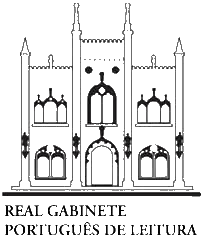The other side of a crime: O segredo da morta, by António de Assis Júnior
DOI:
https://doi.org/10.37508/rcl.2022.n47a472Keywords:
António de Assis Júnior, Colonial Society, Angolan MoresAbstract
The aim of this paper is to analyse the relevance of the novel O segredo da morta, by António de Assis Júnior, published in 1934, to the new literature in Angola. If in its very beginning the purpose is to show the Angolans’mores and to describe this African colonie, in this novel it’s the literary words and the power of fiction and free imagination which take the most important place. Fantasy and supernatural blend History and Myth, Tradition and Dream. The presence of the marabilia into a world taken as a real one, introduces a gap between History and Legend and destabilizes the rationalist discourse. The voice coming from another world composes the animist realism, particularity of African literature.
Downloads
References
ASSIS JÚNIOR, António de. O segredo da morta (Romance de costumes angolenses). Luanda: Ed. Maianga, 2004. Biblioteca de Literatura Angolana, União dos Escritores Angolanos.
CHAVES, Rita. “Literatura, viagem e tradução cultural: suspensão em curso. Mulemba, Revista de Estudo de Literaturas africanas de Língua portuguesa, vol. 12, p. 8-21, 2020. In http://setorlitafrica.letras.ufrj.br/ mulemba/artigo.php?art=artigo_2_11.php. Acesso em 22 abr. 2021.
GUERRA, Henrique. Introdução a ASSIS JÚNIOR, António de. O segredo da morta (Romance de costumes angolenses). Luanda: Ed. Maianga, 2004. Biblioteca de Literatura Angolana, União dos Escritores Angolanos, p. 7-18.
HEYWOOD, Linda. Jinga de Angola, a rainha guerreira da África. Trad. Pedro Maia Soares. São Paulo: Todavia, 2019.
MUNANGA, Kabengele. Negritude: Usos e Sentidos. São Paulo: Ática, 1986.
PADILHA, Laura Cavalcante. Entre voz e letra: o lugar da ancestralidade na ficção angolana do século XX. 2. ed. Niterói: EdUFF; Rio de Janeiro: Pallas Ed., 2011.
Downloads
Published
How to Cite
Issue
Section
License
Authors who publish in Convergência Lusíada agree with the following terms:
- Authors retain copyright and grant the journal right of first publication with the work simultaneously licensed under a Creative Commons Attribution-NonCommercial 4.0 International License (CC-BY-NC 4.0) that allows others to share the work with an acknowledgment of the work's authorship and initial publication in this journal.
- Authors may enter into separate, additional contractual arrangements for the non-exclusive distribution of the journal’s published version of the work (e.g., post it to an institutional repository or publish it in a book), with an acknowledgment of its initial publication in this journal.
- Authors are permitted and encouraged to post their work online (e.g., in institutional repositories or on their website) prior to and during the submission process, as it can lead to productive exchanges, as well as earlier and greater citation of published work.

Revista Convergência Lusíada is licensed under a Creative Commons - Atribuição-NãoComercial 4.0 Internacional.









